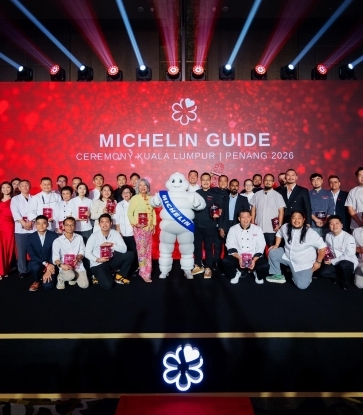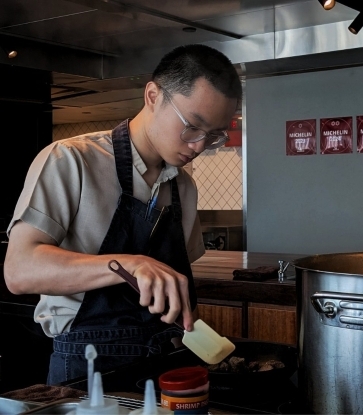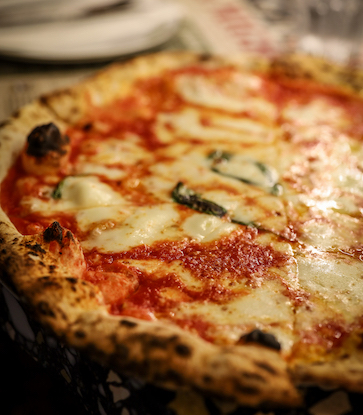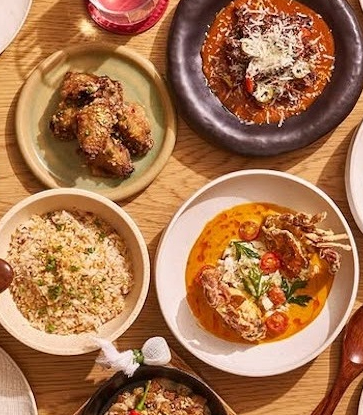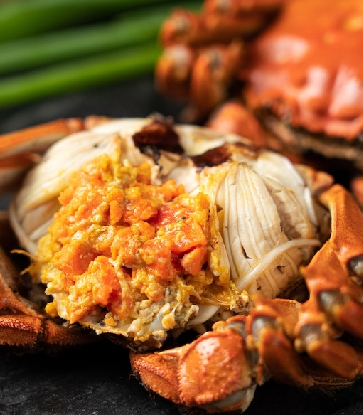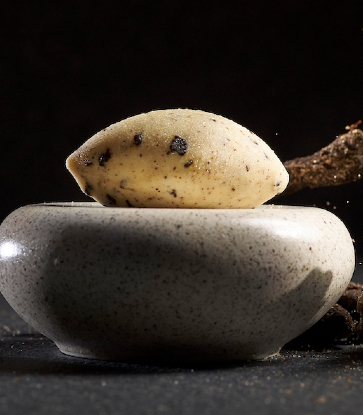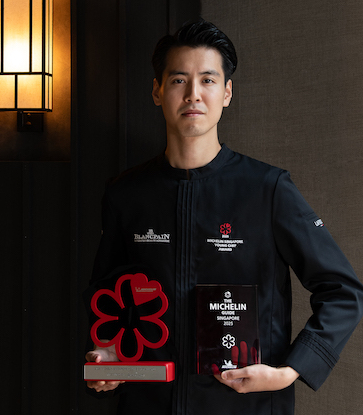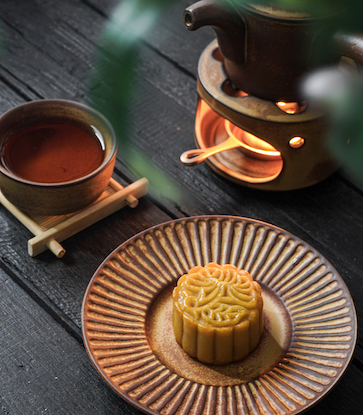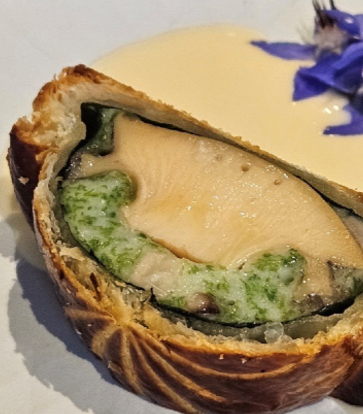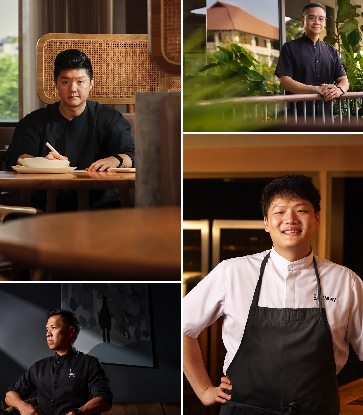Double-boiled soups are a signature offering in most Cantonese restaurants, and while Singapore has its fair share of them, diners can't help but wonder sometimes what does it mean for a soup to be double-boiled.
There are two boiling processes that the Cantonese refer to when preparing soups. In Bou (煲), the stock is brought to a rolling boil over high heat, before the flame is lowered and the soup is simmered for three hours. In Dun (炖), the stock experiences a much slower and gentler process that is characterised by submerging a ceramic pot within an outer pot of boiling water — similar in concept to the double layered metal pots that the French refer to as a bain marie.
Despite what its name suggests, double-boiled soups do not mean that the soup is boiled twice. Rather, it refers to the technique of Dun (炖). Though it takes much longer on the stove, it is said to achieve the maximum flavour extraction with little compromise to the taste and texture of the components, coaxing forth the delicate flavours of ingredients such as shark's fin and bird's nest. Patience is a virtue in this method, as the full flavour extraction can take up to five hours.
Traditionally, double-boiled soup pots are made from ceramic, usually Yixing clay, which conducts heat slowly yet has superior heat retention. An inner, recessed lid guards against evaporation, while an outer, domed lid keeps excess water out. Soup ingredients must be placed inside the smaller pot, which is then placed in boiling water in a larger outer pot.
The water in the outer pot should be replenished regularly, but the inner pot must always remain covered until the end of the cooking time, ensuring that there is no liquid evaporation, and therefore no loss of nutrients or flavour. This allows the soup to retain its essences — taste, healing properties, nutrient value, moisture — offering maximum benefits to its consumer.
What may sound like a tedious process yields to some of the most delectable and nourishing soups that one can find in the Lion City. Here's how five MICHELIN restaurants do their version of double-boiled soups.

Shisen Hanten
Two MICHELIN Stars
MICHELIN Guide Singapore 2022
Double-boiled Chicken and Conpoy Consommé with Abalone, Gobo Root, and Chicken Quenelle
The signature double-boiled soup at two-MICHELIN-Starred Shisen Hanten by Chen Kentaro is the Double-boiled Chicken and Conpoy Consommé with Abalone, Gobo Root, and Chicken Quenelle. According to Kentaro, "there is a unique cloud-like chicken and egg white foam that is added to this restaurant signature. It is a combination of minced chicken meat, beaten egg white, and yuzu zest. It has a gentle texture, like cotton that soaks up the goodness of the soup slowly. This adds an element of surprise for our guests. We recommend taking the first sip of soup without the 'cloud', and then subsequently take sips of it as the subtle addition of yuzu is quite refreshing."
Kentaro explains that for him, a double-boiled soup is not only flavourful, but it is also a highly nutritious dish. "For me, the secret to a good double-boiled soup is all in the ingredients. They must be fresh and of good quality. The quantity for each ingredient is important, too. Adding Gobo Root (Burdock) to the soup is also one of the parts that makes it special. This soup requires seven hours of double-boiling for a flavourful release of the ingredients. It is important also to not over-boil as the flavours will be compromised," explains the chef.

Shang Palace
One MICHELIN Star
MICHELIN Guide Singapore 2022
Buddha Jumps Over the Wall
Buddha Jumps Over the Wall is a soup dish that dates back several centuries ago — to the Qing Dynasty — and is a common sight in both Cantonese and Min (Fujian) cuisines.
The Buddha Jumps Over the Wall soup at one-MICHELIN-Starred Shang Palace is a "luxe" rendition of a double-boiled soup. The broth is made with kampong chicken and a variety of rich ingredients including sea cucumber, dried scallops, abalone, fish maw, mushrooms, tendon, pork belly, Chinese herbs, and more, simmered for more than four hours in a traditional Chinese pot.
According to executive Chinese chef Daniel Cheung, "Soups are a mainstay of the dinner table in Hong Kong. There’s nothing quite as comforting to the soul as a hot bowl of soup, especially during the rainy and cold seasons. My family used to boil soup at least three days per week — from normal household pork rib soup to expensive premium soup such as Buddha Jumps Over the Wall during Chinese New Year."
Apart from patience, Cheung shares that the secret to a delicious double-boiled soup lies in the quality of ingredients and the fire control. "A good soup involves the understanding of ingredients as well as techniques. All ingredients need to be thoroughly cleaned before placing them altogether into a pot of room temperature water, bringing it to a boil, and simmering for around one to four hours," he shares.

Summer Palace
One MICHELIN Star
MICHELIN Guide Singapore 2022
Chen Yu Luo Yan (created for the ladies) and Qi Yu Xuan Ang (created for the men)
The Chinese believe that a balance of the yin and the yang forms the wholeness of Qi that maintains and promotes physical and emotional health. Food and diet are also an essential part of traditional Chinese medicine, with a history of over 5,000 years. At one-MICHELIN-Starred Summer Palace, Chinese executive chef Liu Ching Hai embodies the philosophy of Qi in the restaurant's double-boiled soups, namely the Chen Yu Luo Yan, which was created for the women, and Qi Yu Xuan Ang, which was created for the men.
"The two soups follow the tradition of Qi, matching correct food and herbs to attain a healthier diet, especially for the modern-day diners who are often caught up with the hustle and bustle of life," explains Liu. “Chen Yu Luo Yan (沉鱼落雁) is a revitalising bird’s nest broth with fish maw, dried scallops, and ginseng. The combination of the ingredients brings key nutritional benefits that help in the calming of mind and nourishing the blood. It is also beneficial for the spleen, stomach, and lungs. It also helps improve eyesight and beauty, while fortifying the immune system. On the other hand, Qi Yu Xuan Ang (气宇轩昂) is a tonic made with the essence of deer tendon. It contains abalone, sea cucumber, and Chinese herbs. It is an invigorating soup that promotes longevity, strengthens bones and muscles, lowers blood pressure, and boosts good eye health."
When asked, Liu says that double-boiled soups hold a very special place in his heart. "They evoke memories of family and home," he says. "A precious memory from my childhood is of my mother standing over the stove, making soups for the family throughout the passing seasons. For example, in the winter, there will always be a piping hot bowl of soup, like a winter melon soup with barley and pork ribs, waiting for us. It’s a simple, humble dish, but a very important one that will always instantly warm our hearts and nourish us at the same time."
Liu continues: "There’s a saying in Chinese that shares the same meaning of 'soft fire makes sweet malt'. Double-boiled soups need to be clear but flavourful — of which you need both patience and passion to do so. Each soup base takes hours of slow-cooking to bring out the essence of the flavour. The quality of ingredients is also extremely important in making a good double-boiled soup. There needs to be a strong balance between the selection of the ingredients and their quality, as multiple ingredients may contradict each other and ruin the flavour of the soup. At Summer Palace, we make sure to be generous with the ingredients without compromising on the flavours."

Man Fu Yuan
MICHELIN Selected Restaurant
MICHELIN Guide Singapore 2022
Kung Fu Soup
Kung Fu Soup is the signature double-boiled soup served at MICHELIN-listed Man Fu Yuan at InterContinental Singapore. Compared to most restaurants that take their inspiration from Cantonese traditions, Man Fu Yuan's hails from Teochew culture. According to Chinese executive chef Aaron Tan: "What makes this soup so special is that it is slow-boiled for six hours using sakura chicken bones, white onions, and most importantly, Maca herb. After that, we top the soup off with a succulent abalone and morel mushrooms. Teochew culture is the main inspiration behind our Kung Fu Soup as it combines the cooking and preparation philosophy of the all-time favourite Bak Kut Teh and Kung Fu Tea to create a premium, luxurious soup that can be enjoyed by anyone of any age." The Kung Fu Soup is served in a teapot and placed atop a bed of dry ice with jasmine rice on the side. Tan recommends the soup to be enjoyed just like a tea: "unhurriedly, taking in the soup one sip at a time," he explains.
"I grew up drinking double-boiled soups, and one of the more memorable soups I've had is a double-boiled soup with duck and preserved lemon. I was just 11 years old back then, working at a small restaurant in my hometown of Perak in Malaysia. Whenever I head back home and drink that soup, precious childhood memories come flooding back, especially the day my head chef back then challenged me to cook my very first dish — fried rice. The sense of achievement derived from cooking that simple dish and seeing the pride on my head chef’s face was what spurred me to pursue a career as a chef," Tan reminisces.
"While patience plays a very crucial role when it comes to preparing double-boiled soups, it’s also about nailing the basics — using only the freshest ingredients and the right condiments to bring out the natural flavours. Personally, besides the Maca herb, Chinese Hua Tiao wine is another superb ingredient I like to work with," he shares.

Yan Ting
MICHELIN Selected Restaurant
MICHELIN Guide Singapore 2022
MICHELIN Guide Singapore 2022
Double-boiled Sea Coconut Consommé, Snow Lotus, and Dried Scallop Soup
At MICHELIN-listed Yan Ting located at The St. Regis Singapore, Chinese executive chef Chan Wing Kwong shares that the restaurant's signature soup, the Double-boiled Sea Coconut Consommé, Snow Lotus, and Dried Scallop Soup is put together using key ingredients such as dried African Sea Coconut and Snow Lotus, which are known for their cooling properties that cater to Singapore's climate.
"As a Cantonese, I was brought up along with the cuisine where we would have at least one soup a day, across all four seasons. I tend to be more particular about soups as it is a way of life to me and a staple in my meals growing up. As a family, we would have more nourishing soups with warming properties in the winter and cooling soups in the summer. There are many variations to it, with each flavour distinct to the ingredients selected," he expresses.
When it comes to making double-boiled soup, Chan shares that it all boils down to the dining experience and the ingredients used. He shares: "With over 30 years of culinary experience in Cantonese cuisine, I would be able to tell the quality of the soup based from the aroma and colour. An ingredient that is often used would be dried mandarin peel (with those aged 20 or more years being the best quality) to elevate the flavours of soups in a progressive manner."



